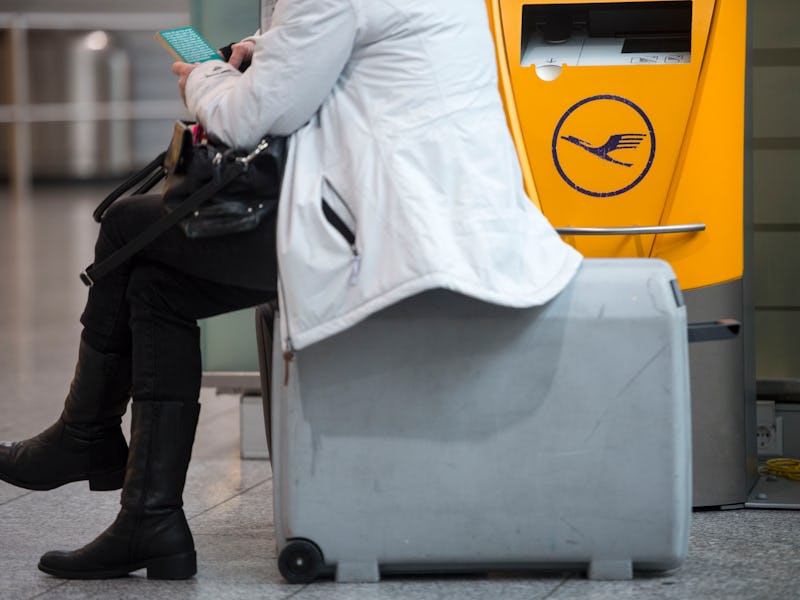What Happens When Airlines Lose Your Luggage
In the last eight years, the number of lost bags has been more than halved.

And so we enter the fresh hell of lost luggage season. The first nine months of the year, plenty of bags fail to arrive at their destination on time (only 3.3 per 1,000 passengers according to the Bureau of Transportation Statistics), but in December and January, as travelers shuffle through our nation’s airports, the numbers spike. Recently, American Airlines embarrassingly lost Boston Marathon bombing survivor and professional dancer Adrianne Haslet-Davis’ prosthetic leg. She tweeted about it:
The airline found her bags — and her dance and leg parts — a few hours later and apologized. While the Twitter outcry was loud and hot, it was ultimately short-lived.
Thankfully things are getting better. When finding and returning passenger bags ended up costing the industry $4 billion dollars per year in 2007, it wasn’t just an embarrassment but a major drain on the bottom line.
Lost baggage rates have been steadily declining over the last few years, partially because charging for extra bags meant fewer pieces of luggage were being checked.
Meanwhile, trade group International Air Transport Association was urging airlines to reinvest in their technology. Add scanners that could track bags throughout the system, arm gate agents with printers to tag last-minute bags, and send real-time updates to truck drivers to ensure gate changes are communicated, they said.
It seemed to work: By 2013, airlines were only mishandling 21.8 million bags per year, less than half the 46.9 million bags that needed rescuing in 2007.
Having people pay for luggage has cut down on the number of bags lost.
But what if fortune abandons you?
Here’s Melanie Hinton of Airlines For America, another trade group:
“Airlines have also invested in baggage enhancements to dramatically reduce the number of mishandled bags utilizing new technology to provide more transparent data, often in real time, on the exact location of a checked bag,” she writes. “Some airlines now also provide this location information directly to the passengers, either through their website or mobile application.
Advanced baggage tags are also looking to drive the number of mishandled bags down, by integrating technology such as RFID (radio-frequency identification) chips or tracking capability into a functional, scannable tag.”
If something does happen to your bag, obviously you notify the airline immediately, but Hinton offers free bullet points on avoiding a problem:
· Make sure your luggage is labeled — both on the inside and outside with your name and contact information.
· Take a picture of your bag, and keep on your phone. Many bags look alike, knowing exactly what yours looks like can help reconnect you in the event you and your bag are separated.
· Always carry keys, medication, valuables (including jewelry or electronics) with you in your carry-on.